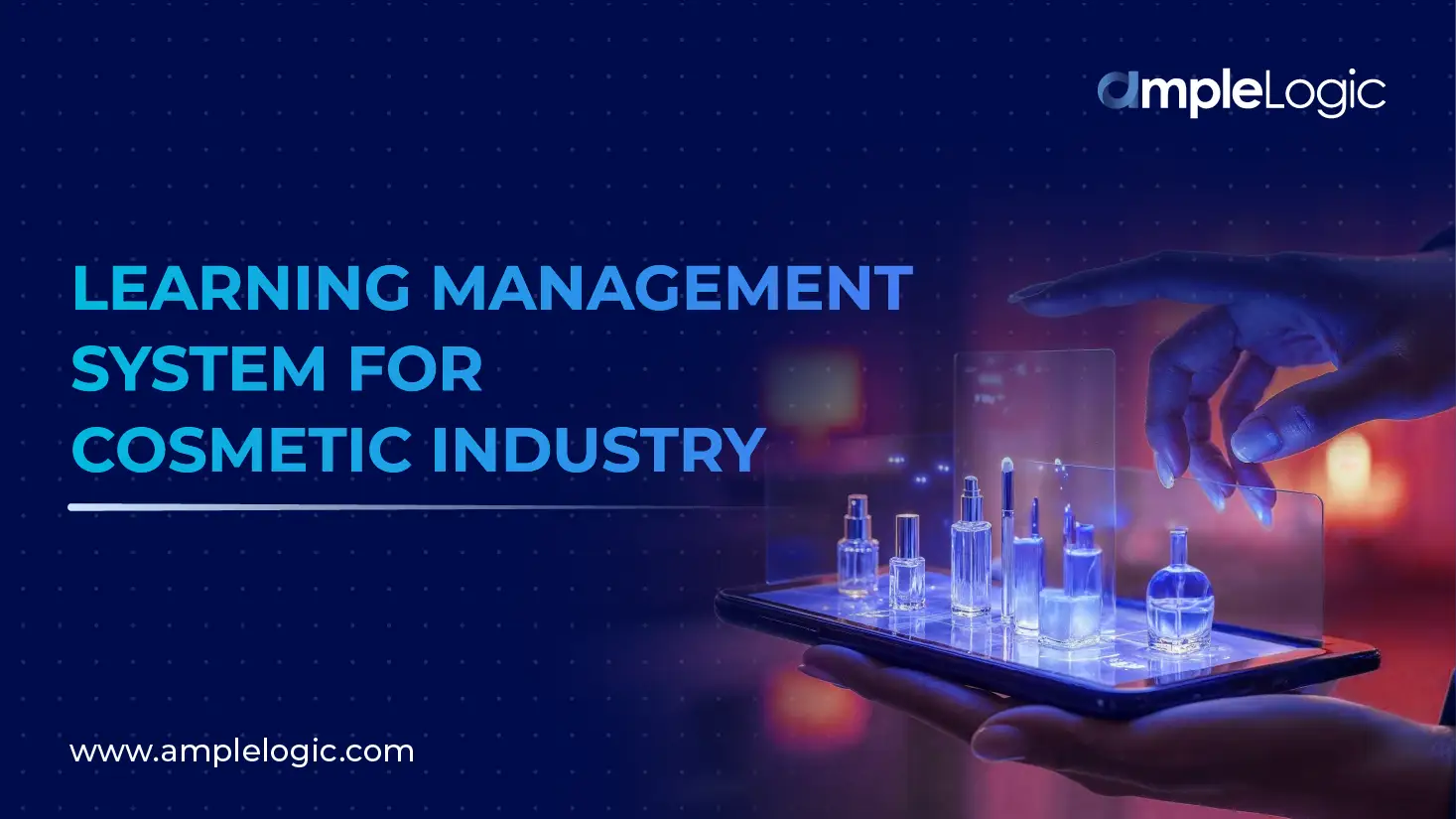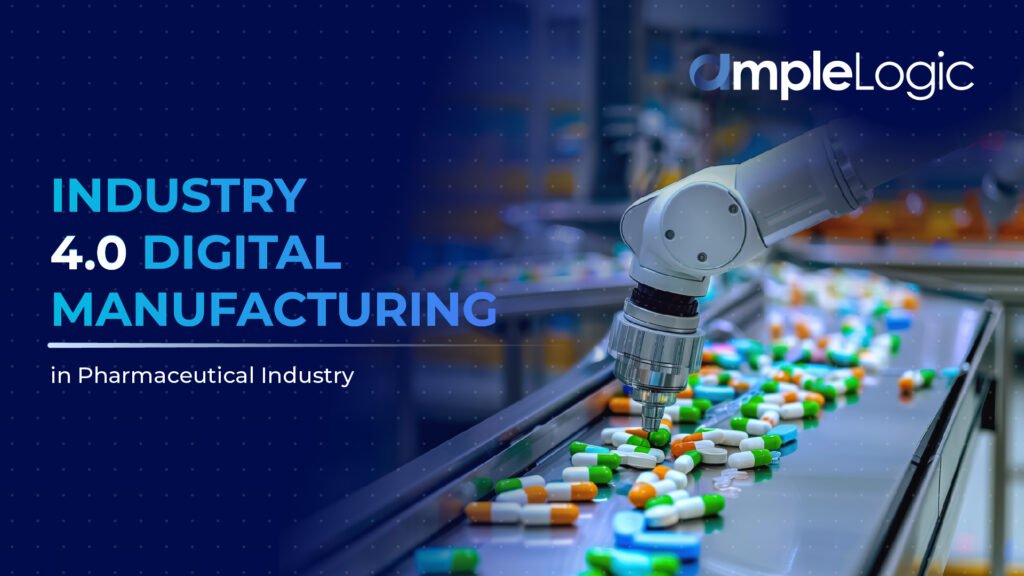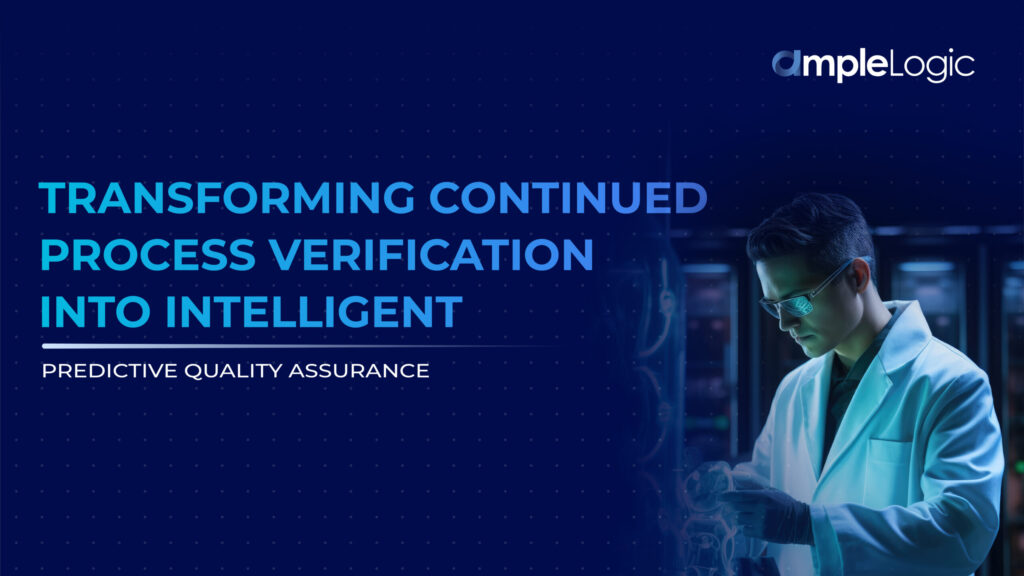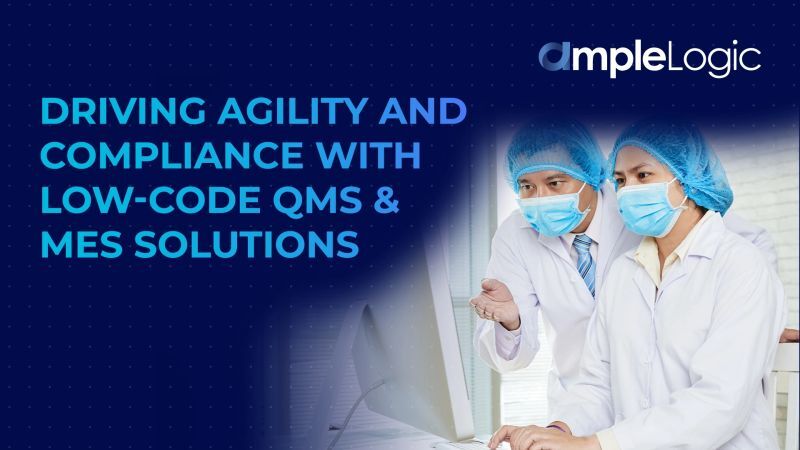
The global cosmetics sector stands at a critical juncture. Valued at $429 billion in 2022, the market is projected to double by 2032, reaching nearly $865 billion with a compound annual growth rate of 7.1%. Cosmetics have evolved beyond being a discretionary expense, becoming daily essentials across demographics worldwide.
Electronic Learning management system for cosmetics industry are emerging as strategic assets that drive operational excellence, regulatory compliance, and market agility. Accelerated product innovation cycles, complex regulatory environment, and consumer demand for personalized experiences demand incisive workforce training models.
However, many cosmetic companies still rely on inconsistent, manual training processes, which expose them to risks of non-compliance, slowed product launches, and diluted brand experience. For leaders in cosmetics or personal care segments, understanding the precise leverage of a cosmetics LMS today is critical for sustaining a competitive advantage and operational resilience.
The Challenge: Complexity in Cosmetics Training and Compliance
Cosmetic companies face a unique convergence of complexity: rapid product innovation driven by evolving consumer preferences, stringent regulatory oversight (FDA, EU Cosmetics Regulation), and the need for seamless retail execution across global markets. Training challenges are multifold:
- Product portfolios continually evolve with new SKUs and ingredient formulations, requiring rapid updates to knowledge.
- Regulatory compliance demands ongoing education on ingredient safety, labeling accuracy, and manufacturing practices to avoid costly recalls or legal penalties.
- Retail and frontline staff must not only know product features but also deeply understand product benefits, application techniques, and brand narratives to influence purchasing decisions.
- Geographically distributed teams require consistent training despite cultural, linguistic, and operational diversity.
Without a unified cosmetic compliance training LMS, many companies risk fragmented learning experiences, incomplete knowledge transfer, and operational friction at scale.
Consequences of Inadequate Learning Infrastructure
Failure to modernize training processes using a learning management system for cosmetics industry calibrated to industry needs translates into measurable business risks:
- Extended product launch cycles due to delayed or inconsistent training impact revenue and market share.
- Increased regulatory risk from knowledge gaps on compliance protocols.
- Reduced frontline confidence and customer engagement, impacting brand equity.
- Higher training costs and lower scalability from manual or repetitive training methods.
These outcomes directly erode financial performance and weaken the company’s ability to respond to market shifts in real-time.
Features of Modern LMS for Cosmetic Industry
Industry-specialized cosmetic product training LMS platforms now deliver several capabilities designed for the demands of the cosmetic sector:
- Integrated Compliance Controls: Systems come with built-in modules supporting FDA 21 CFR Part 11 and other requirements, offering audit trails, electronic signatures, compliance dashboards, and automated training reminders. This guarantees streamlined reporting and readiness for global regulatory audits.
- Custom Workflows and Templates: Flexible architecture enables administrators to build and deploy bespoke training journeys, from formulation management to safety protocols, supporting unique product lines and evolving regulatory practices.
- Intuitive Multimedia Authoring: Advanced video and audio learning features drive retention and user engagement, complemented by AI-powered interactive assessments (quizzes, exams, and role-plays) for practical skill development. Dynamic authoring tools with drag-and-drop templates facilitate rapid course creation and frequent updates as formulations or rules change.
- Automatic Translation and Localization: Multilingual support, automatic translation, and culturally adaptive content ensure learning consistency across global locations, crucial for a rapidly expanding LMS for beauty brands.
- Mobile Access with Offline Functionality: Dedicated mobile applications provide learners with uninterrupted access to courses, resources, and assessments even in limited connectivity environments, driving productivity in retail and manufacturing settings.
- Branded Experience and White Label Customization: Organizations can integrate their branding, tailor interfaces, and build custom landing pages to reinforce identity and trust, supporting a cohesive learning environment that mirrors luxury product positioning.
- Integrated Document Libraries: Structured resource management ensures rapid access to training materials, SOPs, MSDS sheets, and regulatory documents, further accelerating onboarding and knowledge updates.
- Data Analytics and Compliance Reporting: Robust dashboards track learner progress, certification rates, and training completion, enabling real-time oversight and early risk detection. Advanced filtering helps managers assess learning gaps and optimize intervention strategies.
- Seamless API and Business System Integration: Direct connectivity to HRMS, ERP, LIMS, and supply chain solutions embeds training into operational workflows, supporting full alignment between business and learning objectives.
- Continuous Feedback and Agile Content Updates: Feedback loops and modular architecture allow fast revisions, making training stay relevant as product lines, regulations, and business priorities evolve.
- Collaborative and Social Learning: Role-based dashboards, peer-to-peer forums, and in-platform chat capability foster community, innovation, and cross-functional engagement vital for distributed teams across development and retail.
Incorporating these features into your strategic brief demonstrates not only the necessity of digital transformation but the sophistication and depth required of a cosmetic compliance training LMS deployment for competitive cosmetic organizations today. Each item above reflects ongoing best practices in regulated industries and is central to learning management strategies for the world’s fastest-growing personal care brands.
Current Industry Insights: What Leading Cosmetic Companies Are Doing
Data from recent 2024-2025 industry implementations underscore a clear trend: adoption of electronic cosmetics LMS platforms customized for cosmetic-specific learning drives measurable business value.
- Industry-specialized cosmetic product training LMS platforms, such as those developed by Amplelogic, structure training around product and real-time assessments tailored for cosmetics and personal care professionals. This ensures higher retention and engagement in a creative yet technically demanding industry environment.
- Data-driven LMS platforms provide real-time analytics that help identify knowledge gaps quickly and adapt learning paths dynamically, ensuring training stays relevant amid rapid product cycles.
- Global scalability is enhanced by features like automatic translation and API integrations that embed training seamlessly into wider business workflows, critical for a multinational LMS for beauty brands.
Strategic Imperatives
1. Invest in a Cosmetic-Focused LMS That Aligns with Business Objectives
Leaders must go beyond generic e-learning platforms. Select a learning management system for cosmetics industry built to handle the nuanced demands of the industry- incorporating regulatory compliance modules, dynamic product training, and retail engagement tools. This reduces operational friction from siloed training processes, accelerates launch readiness, and supports brand consistency.
2. Use Data Analytics to Drive Continuous Improvement
Real-time training data and performance metrics enable executives to assess workforce readiness, identify knowledge gaps, and optimize learning investments. Sustainable competitive advantage demands continuous calibration of learning to meet both compliance and market engagement targets.
3. Integrate LMS with Other Digital Transformation Initiatives
The LMS shouldn’t operate in isolation. Integrate with AI-driven product development tools, supply chain systems, and e-commerce platforms to create an ecosystem where training supports every stage of the product lifecycle, from innovation to consumer purchase.
Recommendation: Execute a Phased LMS Adoption with Clear KPIs
- Phase 1: Needs Assessment & Platform Selection
Conduct a rigorous audit of current training gaps, regulatory requirements, and operational workflows. Choose an LMS provider with proven cosmetic industry expertise and efficient technical capabilities for customization and integration. - Phase 2: Pilot & Measure Impact
Deploy a pilot program focused on critical product lines or regions. Use analytics to evaluate labor readiness improvements, regulatory compliance metrics, and sales uplift. - Phase 3: Scale & Optimize
Roll out LMS globally with continuous content updates aligned with product innovation and market changes. Embed feedback loops for ongoing content refinement and learning experience personalization.
Conclusion
LMS adoption in the cosmetic industry is not an optional upgrade; it is a strategic imperative for sustaining innovation, compliance, and market responsiveness. For executives in biopharma, medtech, and healthcare technology sectors allied to cosmetic business units, the choice and execution of a cosmetic compliance training LMS must be deliberate and data-driven.
The companies that anchor their training in tailored, scalable product training LMS platforms gain tangible advantages in product launch velocity, regulatory adherence, and frontline effectiveness. These advantages ultimately translate into stronger market positioning and revenue growth in a landscape defined by rapid change and elevated consumer expectations.
Decision makers must prioritize the right cosmetics LMS or LMS for beauty brands that delivers dynamic, mobile, and data-rich learning experiences today, as this capability will underpin the cosmetic industry’s ability to compete and lead tomorrow.





















